Top 10 Coffee Brewing Mistakes & How to Avoid Them
For those of us who love their coffee, betting the perfect taste is nothing more than a learning experience. The majority of people that we know love the fresh taste of coffee that you get from your local coffee shop or chain supplier in the UK.
We all have slightly different preferences when it comes to taking our coffee brew. Some people like Starbucks, some like Costa, some like Cafe Nero and others prefer the quieter atmosphere of their local coffee shop.
Whichever is your individual pleasure, many people find it hard to replicate that fresh taste in the comfort of their own homes. There are many reasons for that of course.
In this article we look at the top 10 coffee brewing mistakes that are regularly made by those trying to replicate barista style coffee at home.
We have come up with these based on the mistakes that the many contributors to our website have made over the years. They are simple mistakes and ones that are easy enough to avoid.
What are you Trying to Achieve?
Let's face it, when you sit down at your preferred coffee shop to enjoy your coffee, it is worth considering what happens there. Here are the stark facts:
- They use fresh coffee beans every day
- They grind the beans just before they make your coffee
- They steam the milk there and then during the brew
- Their baristas have all been through a training program that ensures the right volume of coffee is used, is properly tampered and how much water to add
- Finally they have the best coffee machines with the price tag of a small sport's car
And now just ask yourself, how on earth do you compete with that in your own kitchen? It is a pretty tough ask for sure. However there are certain things that you can do, to get as close to this perfection as you can.
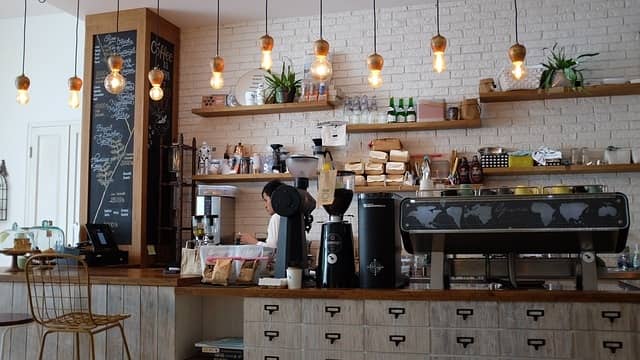
Top 10 Coffee Brewing Mistakes to Avoid
Here is our top 10 list of the coffee brewing mistakes to avoid
Coffee Brewing Tip 1 - Avoid Old Coffee Beans
In the ideal world you should buy and use only fresh beans. A very good rule of thumb is to only buy enough beans that will last for up to 2 weeks. Many of our contributors have stated that their frugal nature does by instinct prevent them from wanting to throw food out.
That is of course very understandable, but if you want great tasting coffee, you should never use old beans. As soon as a packet of coffee beans has been opened, they begin to lose their flavour, and quickly if they are not stored properly.
One good use of old beans is to use them for making a cold brew coffee.
Coffee Brewing Tip 2 - Clean Your Coffee Making Equipment Regularly
There are many ways to make coffee. These include pod/capsule machines, coffee machines, bean to cup machines, Chemex, Aeropress, Moka pots, French Press etc.
All of the methods have one thing in common. They will use some piece or pieces of equipment. It is very important to clean those on a regular basis. Coffee is best served when it is as fresh as it can be.
In most cases this does not take that long to do, but people will not always have the time to do it as soon as possible. Coffee machines in particular need some extra attention as they have chambers and pipes.
Water, especially hard water can build up limescale, so those will need to be regularly descaled. It is better to use filtered water. Many of the higher end bean to cup coffee machines now have cleaning and descaling programs automatically built into them for that very reason.
Coffee Brewing Tip 3 - Using the Wrong Grind
Out of all of the coffee brewing tips on our list, I personally think this is the biggest mistake that many home brewers make. I have seen this time after time and the reality is that it does take some practise and a little knowledge to get it absolutely right.
Each brewing method needs a different size of grain. The way you grind coffee for a filter coffee machine is very different from the grind used in an espresso machine.
Getting this wrong means that your coffee can be too weak, too strong, too bitter or the bottom of your cup may end up filled with small dusty grains.
Grinding coffee beans initially sounds complicated and can also be a frustrating experience for a beginner. It does take a little perseverance when starting out. It is worth the patience and the effort though, as once you master the technique, you can take your coffee quality to a whole new level.
Check out our article on how to grind coffee by clicking here
Coffee Brewing Tip 4 - Buying Pre-Ground Coffee
The next time that you are in a supermarket check out the coffee aisle and notice the amount of brands who sell this type of pre-ground coffee. They do that because it offers convenience.
Rather than grind your own beans at home, they have done that for you, and it saves you the trouble. We agree that these bags of pre-ground coffee are very handy, and the coffee is fresh when it is packed.
However, as soon as you open that packet, and the air gets in a process of oxidation begins. As the grains are smaller than a packet of fresh beans, they are more prone to this process. That starts to make the grains go off and if left long enough will make your coffee taste bitter.
Even though it may take a little more work, it is always best to grind fresh coffee beans just before you make your coffee. All you need is a good quality burr grinder and a few attempts at getting the right grind for your machine.
One other thing worth mentioning is to make sure you buy the right type of pre-ground coffee for your machine. Some are made for the filtering process and some are made for the espresso brewing method.
These are ground to different thicknesses and it is important to read the packaging and make sure you are buying the right type of grounds.
Coffee Brewing Tip 5 - Which Water Should You Use?
This was a brewing problem that we had never looked at in much detail. We set up an experiment just to test this out. We used tap water to make 3 coffees and then used filtered water to make 3 coffees.
We did not tell the testers what the difference was. All 3 testers picked the filtered water coffee as their preferred choice. The difference really is noticeable and we encourage you to try it out.
The scientific reason for this is that ordinary tap water can contain minerals that will affect the taste of your coffee. In areas of the UK the water quality diverges quite a lot.
Hard water areas have a lot more minerals applied in the treatment plant. We found during our various tests, that used filtered water, or bottled spring water made a big difference to the taste of the coffee.
We also discovered that in most good coffee shops they also filter their water.
Check our full article on the best water for coffee by clicking here.
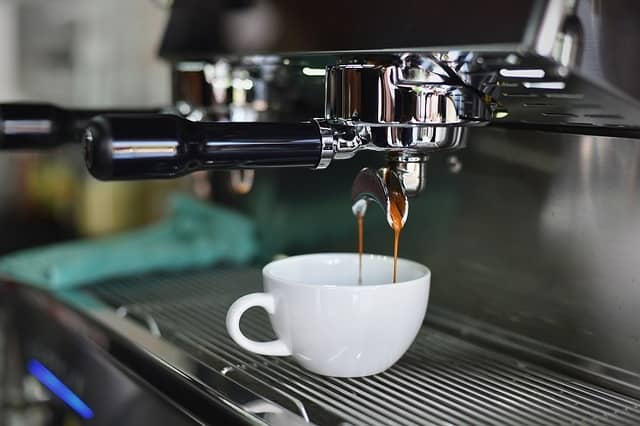


Coffee Brewing Tip 6 - Water to Coffee Ratio
To help make our website better we read many of the online coffee forums and Facebook pages relating to coffee. One of the biggest problems we hear people discuss is knowing how much coffee to put into their machines.
Most manufacturers will have this in their instruction manual. The problem with that is that the people who buy these machines seldom read through the instructions.
The coffee to water ratio is vitally important to understand. This is one of the key factors that will determine the strength of your coffee.
The general golden rule here is 2 tablespoons of coffee for every 6 ounces of water. Some brewers take this element very seriously and will weigh out their coffee.
This area can get complex but it is always best to stick with the recommendation made by the manufacturer of your machine.
You can check out the right ratio for coffee to water by reading this article.
Coffee Brewing Tip 7 - The Wrong Water Temperature
Your machine should be able to work this out for you, but for those without a machine, many people use boiling water.
The perfect temperature to brew most coffee grains is 200 degrees Fahrenheit (195-205 range) or 93 degrees Celsius.(90.6-96.1 range)
So as you can see that is just before boiling point. Boiling hot water will scald the coffee grains and leave quite a bitter taste. So if you are using a kettle to brew your coffee, then boil it and leave it to sit for a few moments before using the hot water.
A simple kitchen thermometer can be used for this purpose.
Coffee Brewing Tip 8 - Buying Low Quality Coffee
We have always found that coffee is very similar to wine. You really do get what you pay for, and the difference in the quality of the beans can be huge. There are a lot of cheap coffees out there on the UK market.
We would recommend having a look around and trying out the slightly more expensive beans. We would highly recommend going to a store that specialises in coffee beans, though they can be hard to find.
Most of the contributors here will go online and pick out their beans. That way they get to pick out coffee beans based on buyer's ratings and experiences. We would recommend avoiding the bargain basement when it comes to buying coffee beans.
Check out our article on buying coffee beans online by clicking here
Coffee Brewing Tip 9 - Storing Coffee Beans
Have you done the following? You open a packet of coffee beans and have enjoyed that most wonderful aroma. You then use some of the beans and then curl the packet up and put it back in the cupboard. You may even use the small sticker to help keep those sealed.
Most people do this and that is honestly a really big mistake. Oxygen and moisture in the air are the known enemies of coffee beans and coffee grounds.
You should use an air tight coffee canister, and then store in a cool dry location away from the air and the light. Where possible you should also avoid any extreme temperatures, hot or cold.
Check out our article on storing beans properly by clicking here.
Coffee Brewing Tip 10 - The Wrong Filter or no Filters
Although this is at number 10 on our list, it is still an area of confusion for many buyers and coffee lovers. Now as you may know there are three types of coffee filters, which are the metal ones, the mesh style or the paper ones.
Filters that have not been cleaned will contaminate your coffee. Washing and cleaning metal and mesh filters after every brew is something that you should do, even if it is a pain in the ass.
Paper filters come in many different sizes and you should always use the ones that are recommended by the manufacturer of your machine.
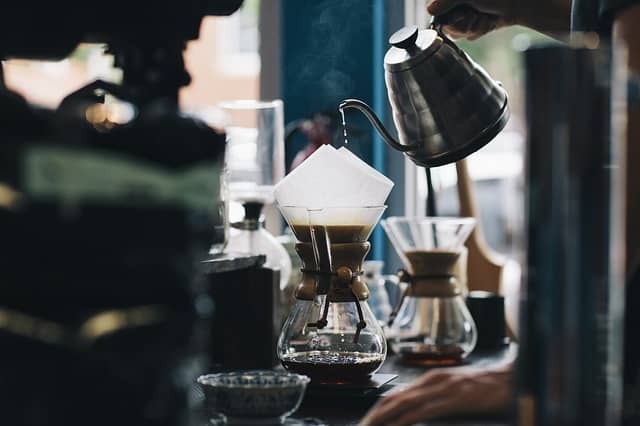


Summary & Conclusion
We have learned these coffee brewing mistakes over time. Anyone new to brewing coffee will also learn and make their own mistakes. Hopefully with the information we have provided here, you can avoid most of the common mistakes.
We would recommend taking a little time to try and experiment and learn to refine your own coffee making process. There are many brewing methods to try out.
The important things are buying the right quality of beans, having a good grinder and then storing those properly. After that it is down to your preferred method of brewing.


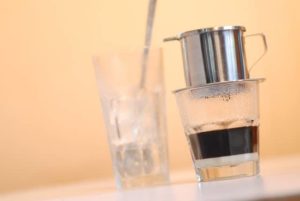
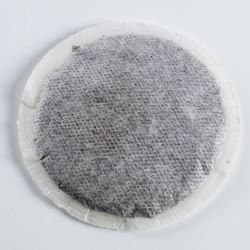
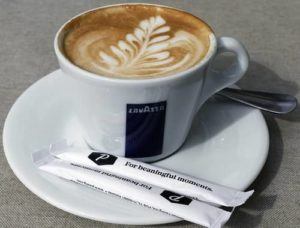
one of the most important points you have forgotten, that is type of roast most coffee is roasted too dark making the brew bitter